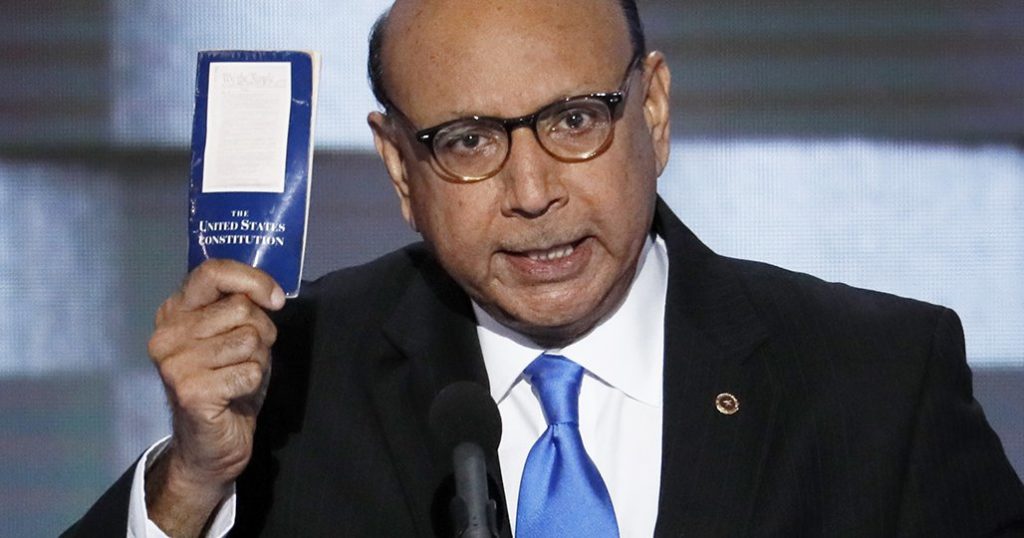Federal judge blocks Alabama’s strict abortion ban

A federal judge on Tuesday blocked Alabama’s near-total abortion ban from taking effect next month and called the law — part of a wave of new abortion restrictions by conservative states — clearly unconstitutional. U.S. District Judge Myron Thompson issued a preliminary injunction temporarily blocking Alabama from enforcing the law that would make performing an abortion a felony in almost all cases. The ruling came after abortion providers sued to block the law from taking effect Nov. 15. The injunction was widely expected and will remain in place until Thompson decides the full case. “Alabama’s abortion ban contravenes clear Supreme Court precedent,” Thompson wrote in an accompanying opinion. “It violates the right of an individual to privacy, to make choices central to personal dignity and autonomy. It diminishes the capacity of women to act in society, and to make reproductive decisions. It defies the United States Constitution.” Energized by new conservatives on the U.S. Supreme Court, Alabama and other conservative states have attempted to enact new restrictions on abortion in the hopes of getting Supreme Court justices to reconsider Roe v. Wade, the landmark 1973 decision that legalized abortion nationwide. A number of states attempted to ban abortion once a fetal heartbeat is detected. The Alabama law went further by attempting to ban almost all abortions with no exceptions for cases of rape and incest. Passed by the Republican-led legislature, the 2019 Alabama Human Life Protection Act would make performing an abortion at any stage of pregnancy a felony punishable by up to 99 years or life in prison for the abortion provider. The only exceptions would be when there is a serious health risk to the mother or the fetus has a lethal anomaly that would cause it to die shortly after birth. None of the state bans has taken effect. Some have already been blocked, and elsewhere courts are considering requests to put them on hold while legal challenges play out. “This is not only a victory for the people of Alabama — it’s a victory for the entire nation. We said it from the start: This ban is blatantly unconstitutional, and we will fight it every step of the way,” said Staci Fox, president and CEO of Planned Parenthood Southeast. Planned Parenthood was one of the groups that sued to block the law. Randall Marshall, executive director of the American Civil Liberties Union of Alabama, said the decision was expected. “Abortion remains legal in Alabama. The state’s repeated attempts to push abortion out of reach by enacting unconstitutional laws restricting abortions has already cost taxpayers nearly 2 ½ million dollars,” Marshall said. “This ill-advised law will cost taxpayers more money.” Supporters of the Alabama law have also said they anticipated the action but hope to eventually convince the U.S. Supreme Court to roll back abortion rights. Alabama Republican Rep. Terri Collins, who sponsored the ban, said the ruling “is merely the first of many steps on that legal journey.” “As we have stated before, the state’s objective is to advance our case to the U.S. Supreme Court where we intend to submit evidence that supports our argument that Roe and Casey were wrongly decided and that the Constitution does not prohibit states from protecting unborn children from abortion,” Alabama Attorney General Steve Marshall said in statement. In a measured statement, Alabama Gov. Kay Ivey said the ban reflects Alabamians beliefs, but that she also supports the “rule of law.” “This legislation passed with overwhelming support in the Alabama Legislature and was signed into law as a testament to Alabamians’ longstanding belief that every human life is sacred. We must continue doing all we can to protect life,” Ivey said. Republished with the permission of the Associated Press.
Martin Dyckman: Khizr Kahn challenges a ‘morally untethered’ Donald Trump

Thousands of speeches have I heard and forgotten since my first byline 64 years ago. Very few have deserved to be remembered nearly as much as Khizr Kahn‘s 368-word address to the Democratic National Convention Thursday night. Eloquent and powerful in its simplicity and directness, it was timely, to the point, and to the heart as well as the head. He spoke of his son Humayun, a naturalized Muslim-American, an Army captain who died saving his soldiers from a suicide bomber in Iraq. Had it been up to Donald Trump, he said, “he never would have been in America.” Then, in calm and measured words, he hurled a powerful challenge at Trump: “Have you even read the United States Constitution? I will gladly lend you my copy.” He pulled it from his suit pocket. “In this document,” he said, “look for the words liberty and equal protection of the laws. “Have you ever been to Arlington Cemetery? Go look to the graves of brave patriots who died defending the United States of America. You will see all faiths, genders and ethnicities. “You,” he said to Trump, “have sacrificed nothing and no one …” Unless you were watching Fox “News” (why, oh why would you?) you could see and hear it live. As reported by Variety, Fox “chose to cut away from the elder Khan’s speech, in favor of a series of other prepackaged stories.” One of them was a day-old clip of FBI Director James Comey‘s news conference on the ISIS threat. It was as if Trump himself had called the shot. But you can still hear and see the speech for yourself on YouTube and at other links that neither Trump not Fox can suppress. It’s a personal issue with me. Cousins who had sought refuge in France died in the Holocaust because the United States would not let them come here. The State Department was infested at the time with anti-Semites. (Read about them in Eric Larson‘s book, “In the Garden of Beasts.”) Among their pretexts: there might be spies and saboteurs among the refugees fleeing Hitler. Does that sound familiar? Fellow immigrants — unless your ancestors met the boat at Jamestown, this means you — all of us have been the intended victims, at one time or another, of bigots like Trump. Laws on immigration, voting, even property rights targeted specific ethnic groups of all races and religions. An anti-foreigner party nicknamed the Know Nothings was strongly influential in the 1840s and threatened for a time to infest the infant Republican Party, where its ghost stalks again. Trump’s bigotry on that issue speaks for itself. Khizr Kahn raised two other points that bear more discussion. Has he ever read the Constitution? In one infamous interview, Trump denied that the Constitution (in the 14th Amendment) guarantees citizenship to everyone born here. Later, he vowed to “stand up for Article Two, Article Twelve, you name it …” There are only seven articles, along with 28 amendments. For all that, it’s one of the shortest founding documents on earth. That palm-size booklet Kahn offered to lend to Trump — I have a copy also — has only 38 pages. But even that is probably way beyond Trump’s attention span. A larger question is whether Trump, who boasts of getting his information from television, ever reads or absorbs anything. Tony Schwartz, the guilt-ridden co-author of Trump’s “The Art of the Deal,” for which he spent months shadowing the subject, told Jane Mayer in the New Yorker (July 25) that Trump “has no attention span.” “This fundamental aspect of who he is doesn’t seem to be fully understood,” Schwartz said. ” … It’s impossible to keep him focused on any topic, other than his own self-aggrandizement, for more than a few minutes, and even then … “If he had to be briefed on a crisis in the Situation Room, it’s impossible to imagine him paying attention over a long period of time …” What, if anything, has Trump ever sacrificed? Like many another affluent young man, Trump escaped the draft with a series of routine student deferments. In the end, he got a medical deferment despite having been active in college sports. None of that was inherently dishonorable. But contrast that with the suffering John McCain endured at the same time as a prisoner of war in Hanoi — the ordeal that Trump has mocked because McCain couldn’t avoid capture. And consider Trump’s 1997 interview with Howard Stern in which he described the risks he had run of catching a sexually transmitted disease as “like Vietnam … better than Vietnam, a little better … “It is my personal Vietnam. I feel like a great and very brave soldier,” he said. Did it not occur to him that a lot of truly brave soldiers came home without their genitals? Or that many more never came home at all? Or was he just being flip? No matter. It is the unguarded comments people make that best reveals their true selves. In that unspeakably ugly moment, Trump exposed himself to be what David Brooks, The New York Times conservative columnist, recently said of him: “He is a morally untethered, spiritually vacuous man who appears haunted by multiple personality disorders.” And yet he might become president. God save the United States from that. ___ Martin Dyckman is a retired associate editor of the newspaper now known as the Tampa Bay Times. He lives in suburban Asheville, North Carolina.
Federal Judge: Gay couples across Alabama have right to marry

A federal judge on Thursday ruled that gays and lesbians have the right to marry in all Alabama counties, but placed her decision on hold until the U.S Supreme Court weighs in on same-sex marriage this summer. U.S District Judge Callie Granade, as she has before, ruled that Alabama’s ban on same-sex marriage is unconstitutional. This time, though, she forbade all probate judges from enforcing it. Her decision to stay the order until the high court rules means that, at least for now, same-sex couples still cannot marry in Alabama. That didn’t stop groups from cheering the ruling as a victory, however, in a state that spent much of the early part of this year at legal war over the issue. “Judge Granade’s new order means that very soon, no probate judge in the state will be able to deny a marriage license to any qualified same-sex couple,” said Southern Poverty Law Center deputy legal director David Dinielli. “This is the right result for Alabama families and it is the one the United States Constitution commands.” The ruling is the latest from the federal judge who has been at the center of gay marriage cases in the conservative Southern state. The order could be her final salvo at the state level before the Supreme Court decision. Granade first ruled that Alabama’s gay marriage ban was illegal in January. As a result, gay couples were able to get married for three weeks until the Alabama Supreme Court in March ordered probate judges to stop issuing marriage licenses. More than 500 same-sex couples married in Alabama during that time, according to the Alabama Department of Public Health. Groups fighting for marriage rights fired back at the Alabama Supreme Court’s decision with a class-action lawsuit brought by gay couples across the state. Granade’s decision Thursday was in response to that lawsuit. Alabama Chief Justice Roy Moore, although he did not participate in the state Supreme Court order, has been a vocal opponent of Granade’s decisions, arguing that she did not have a right to dictate to the state probate judges. The probate judges are part of a parallel state court system, Moore argued. Granade made no secret of which Alabama courtroom she believes has the final say. “It is true that if this Court grants the preliminary injunction, the probate judges will be faced with complying with either Alabama’s marriage laws that prohibit same-sex marriage as they have been directed by the Alabama Supreme Court, or with complying with the United States Constitution as directed by this Court. However, the choice should be simple. Under the Supremacy Clause, the laws of the United States are the ‘supreme Law of the Land,’” she wrote. Alabama Attorney General Luther Strange said he was glad Granade “finally accepted our advice and issued a stay.” However, he said the state would have avoided months of “chaos and confusion” if she had done so when she first ruled in January. “We’ve said from the beginning that the U.S. Supreme Court would have the final say in this matter,” Strange said. Republished with permission of The Associated Press.


